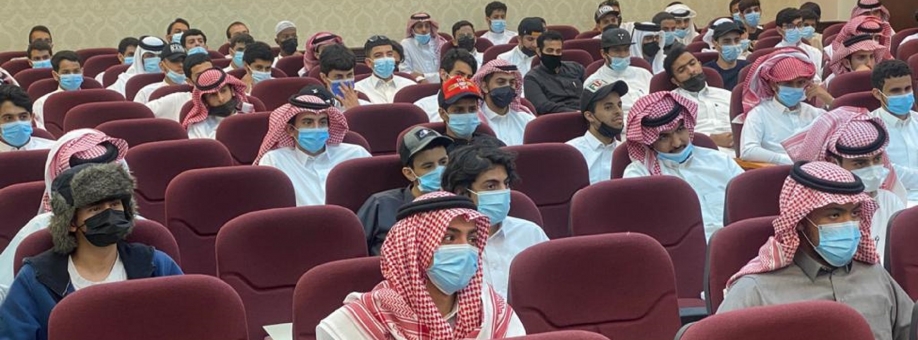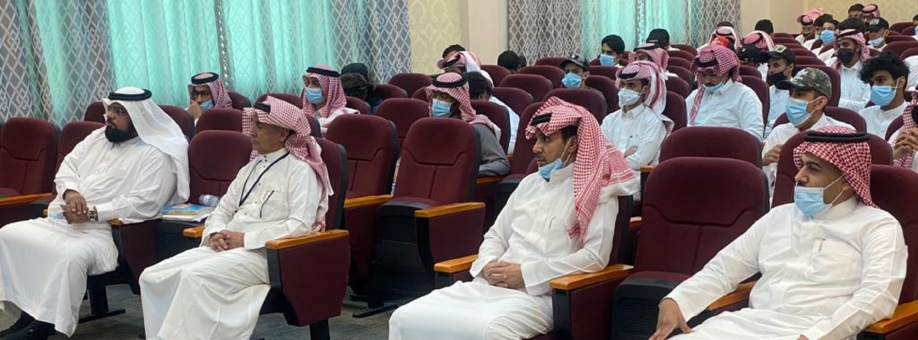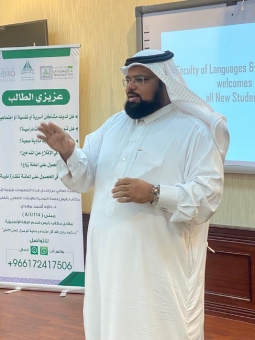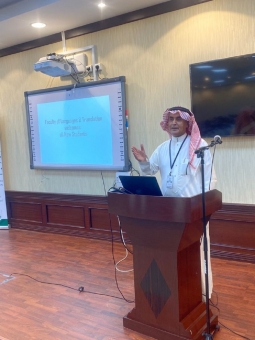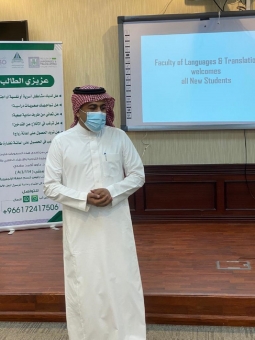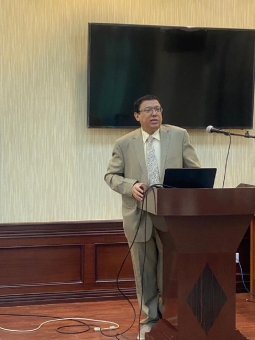Summer Course Experience: Monash University
On Tuesday, February 8, 2022, at 8 pm, four Bachelor of Arts in English program rising seniors, and student representatives of the King Khalid University 2021 Online Summer Program with Monash University, delivered an Alumni Unit webinar entitled "Summer Course Experience: Monash University".
Beginning the webinar as the moderator, Rayan Hassan Alfaifi, a student at the Faculty of Languages and Translation's 4-week 2021 online summer program titled "English Across Cultures and Intercultural Awareness" that ended on 19 August 2021, explained that the program translated into a deeper understanding of the English language and culture. Rayan said: "We thought that why wouldn't we make a full summary of this program and give it to all students through this webinar. This is the whole idea of this webinar." He then introduced the thematic points of the webinar, including fun facts about Monash University, Australian culture & language, language and culture, teaching and learning culture, cultural awareness, intercultural information, bilingualism, native speakerism, pedagogy and fairness, and research tips.
"We were thrilled to offer this opportunity to our top students, especially during the pandemic," said Dr. Abdullah Al-Melhi, Dean at the Faculty of Languages and Translation. "What's remarkable about the online summer program is how KKU's and Monash's high-caliber faculty collaborated to design a curriculum that fit the needs of our students," said Dr. Abdulrahman Almosa, Vice Dean of Academic Development & Quality at the Faculty of Languages and Translation
Hind Mufleh Abudaser, Jana Muneer Saeed, Rayan Hassan Alfaifi, and Faisal Mohammad Asiri then began the informative part of the webinar. They introduced participants to the origins of Australian culture, the colorful vocabulary of Australian English, examples of diminutives, the intersections of language and culture, language as a code, language as a social practice, approaches to learning culture, the four categories of cultural awareness, the concepts of interculturalism and the spaces they are defined in, steps to becoming an intercultural learner, bilingualism, multilingualism, fractional and holistic views, code-switching, translanguaging, the myth of ambilingualism, English as an international language (EIL), the fallacies of native speakerism, pedagogy and fairness, equality vs. equity, and research tips.
The Summer Language Program is a recent development managed by the Faculty of Languages and Translation and its international partners. It serves to enrich gifted and talented students with extracurricular activities in a variety of fields to develop their abilities and skills. Special thanks go to the Alumni Unit for communicating and involving alumni in events and activities.To watch a recording of the event, please see the embedded video below.
Summer Course Experience: Monash University
Date: 2/13/2022
Source: Faculty of Languages and Translation
For a related story, click here.

